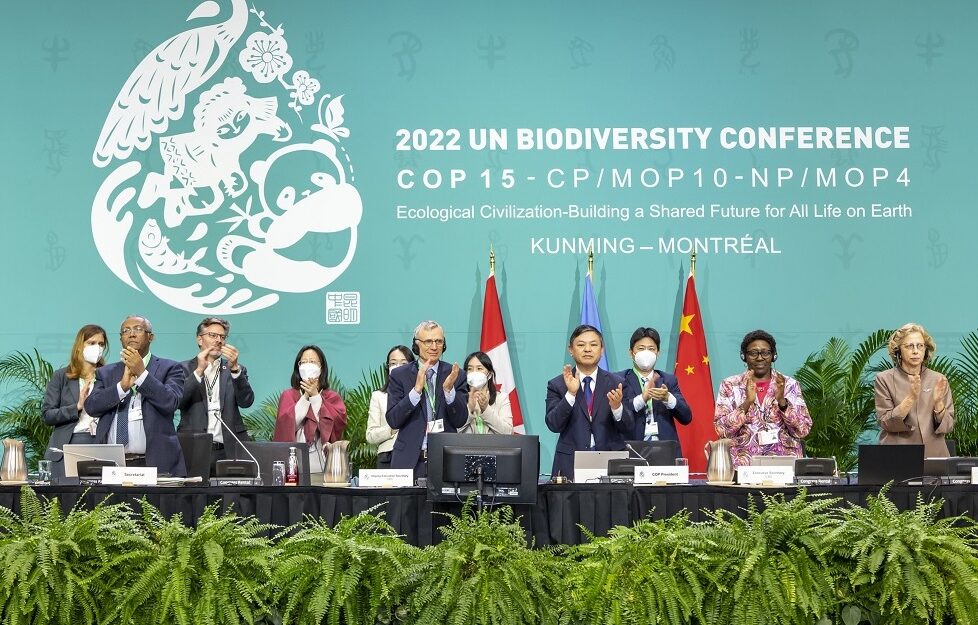International Agreement Reached at COP15 to Halt Biodiversity Loss, Protect Ecosystems

Global governments have agreed to new goals aimed at ending biodiversity loss this decade, protect natural ecosystems and ramp biodiversity-related financing to developing nations, with the adoption today of the Kunming-Montreal Global Biodiversity Framework at the COP15 UN Biodiversity Conference in Montreal, Canada.
Key aspects of the new agreement are 2030 targets to effectively halt biodiversity loss and to protect at least 30% of terrestrial, inland water, and coastal and marine areas, seen as analogous to the global Paris Agreement climate goals to limit warming to 1.5°C.
In a statement following the announced agreement, EU Commission President Ursula von der Leyen said:
“I welcome the historic outcome of COP15. This agreement provides a good foundation for global action on biodiversity, complementing the Paris Agreement for Climate. Now the world has a double track of action for a sustainable global economy by 2050.”
The new framework includes 4 long-term 2050 goals supported by 23 global 2030 targets. The goals include maintaining, enhancing and restoring the integrity, connectivity and resilience of all ecosystems and increasing the area of natural ecosystems, halting human-induced species extinction, and equitably sharing the benefits from the utilization of genetic resources by 2050.
Key 2030 goals include restoring 30% of degraded ecosystems, reducing the loss of areas of high biodiversity importance to near zero, phasing out subsidies that harm biodiversity by at least $500 billion per year, cutting global food waste in half, and reducing the introduction of invasive alien species by 50%.
The agreement also calls for a significant increase in the mobilization of finance for biodiversity to at least $200 billion per year by 2030, and for developed countries to provide biodiversity-related financial resources, including official development assistance, to developing nations of at least $20 billion per year by 2025 and $30 billion by 2030.
Calling the agreement a “major milestone for the conservation of our natural world,” WWF International Director General Marco Lambertini welcomed the new framework, adding that “a shared global goal that will guide collective and immediate action to halt and reverse nature loss by 2030 is an exceptional feat for those that have been negotiating the Global Biodiversity Framework, and a win for people and planet.”
WWF warned, however, that weak language and the voluntary nature of the agreement could threaten the goals to halt biodiversity loss and preserve ecosystems. Noting that the framework “lacks a mandatory ratcheting mechanism that will hold governments accountable to increase action if targets are not met,” Lambertini said:
“We must now see immediate implementation of this agreement, no excuses, no delays – nature and all of us who rely on it for our livelihoods, economies and wellbeing have waited long enough, it’s time for nature to thrive again. Governments have chosen the right side of history in Montreal, but history will judge all of us if we don’t deliver on the promise made today.”
The post International Agreement Reached at COP15 to Halt Biodiversity Loss, Protect Ecosystems appeared first on ESG Today.